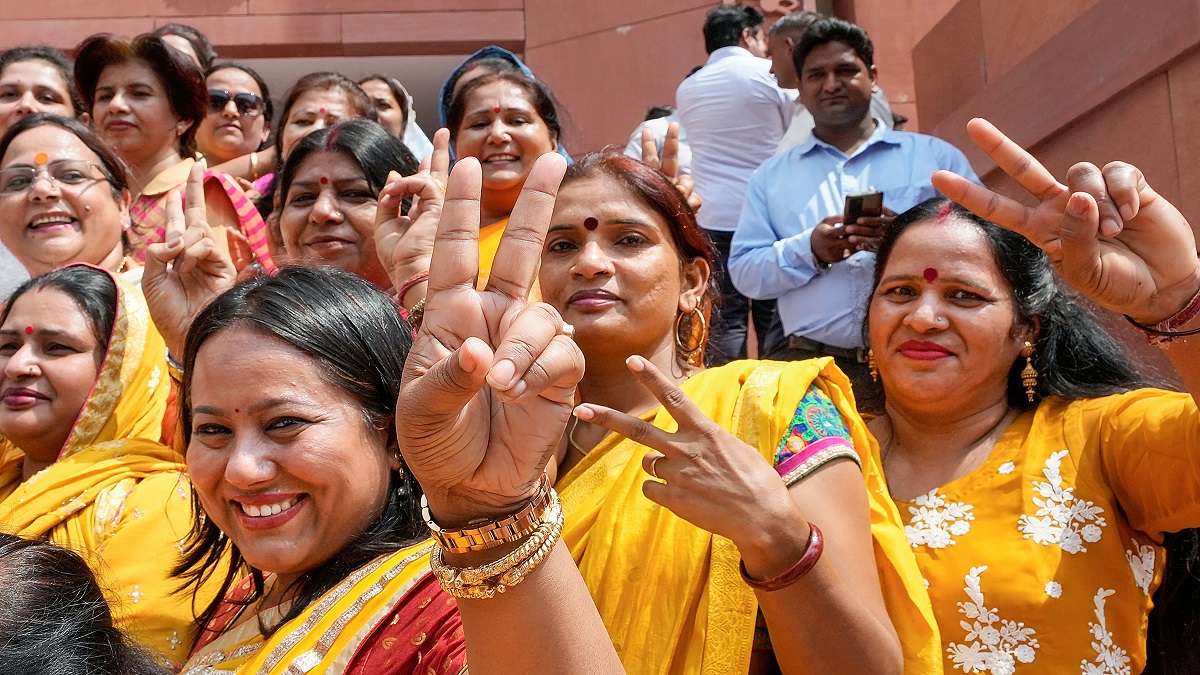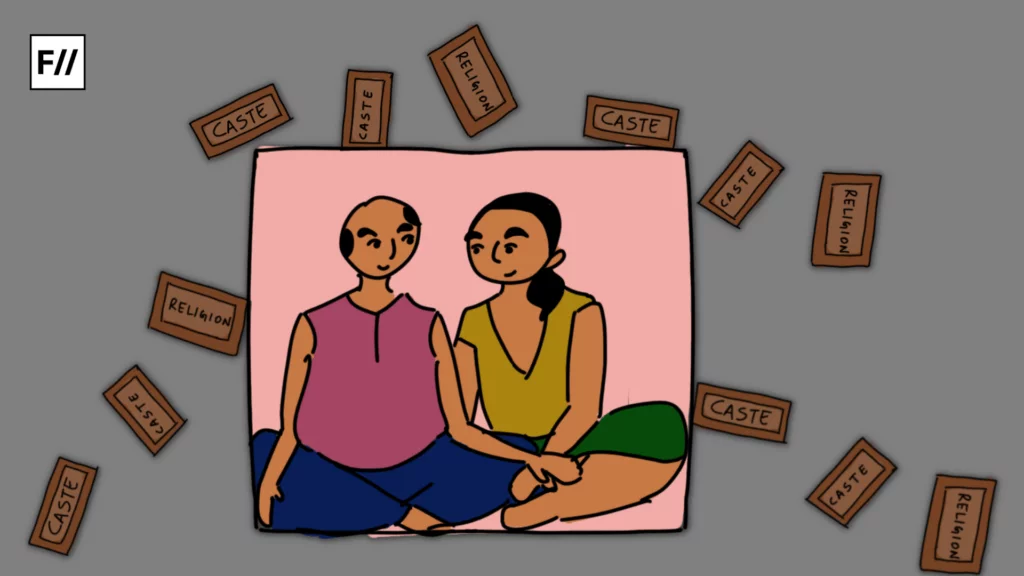Approximately 7 months before the Lok Sabha Elections, the ‘Nari Shakti Vandan Adhiniyam,’ (Women’s Reservation Bill) was passed in the Lok Sabha with 454 votes in favour and 2 against it. The Constitution (One Hundred and Twenty-Eighth Amendment) Bill, 2023 proposes to reserve 33 per cent of seats in both the Lok Sabha and the State Assemblies for women. It also specifies one-third of the total number of seats reserved for Scheduled Castes and Scheduled Tribes will be reserved for the women from the respective categories.
In detail lies the devil
This bill received the Lok Sabha majority on 20th September and Rajya Sabha’s accent on 21st September 2023 in the special Parliament session; it will be implemented after a census and the delimitation exercise is completed. Law Minister Arjun Ram Meghwal announced that the Delimitation Commission would decide “which seats will go to women.”
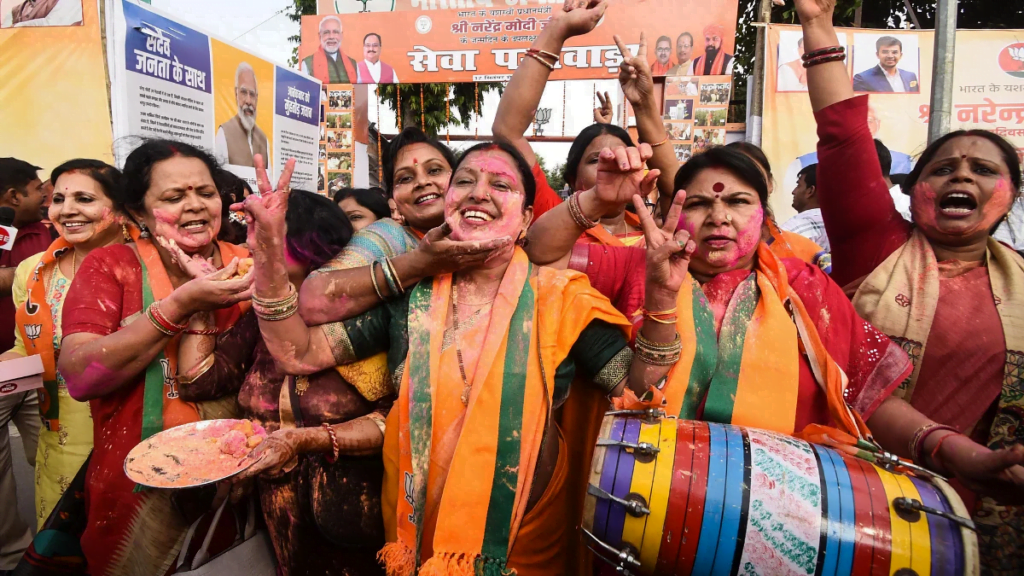
It is important to understand that the caste census is essential in determining the percentage of women belonging to each caste. Fortunately, it will give confirmation and accuracy to the number of non-upper caste women living in the society. This will, therefore, benefit women from marginalised castes by having accurate representation in the Lok Sabha and the State Assemblies.
Caste census and delimitation are very important pre-processes of this reservation procedure. Without that, this bill isn’t intersectional and benefits only the upper-caste women, which again needs a solution.
In a country with more than 140 crore people, a census is a dire necessity. It is also important to know how many Indians are ST and SC women; and how many of them need reservations in terms of opportunities. The census that was supposed to happen in 2019 is pending which is why the delimitation exercise has also not seen the light of day. Therefore, caste census and delimitation are very important pre-processes of this reservation procedure. Without that, this bill isn’t intersectional and benefits only the upper-caste women, which again needs a solution.
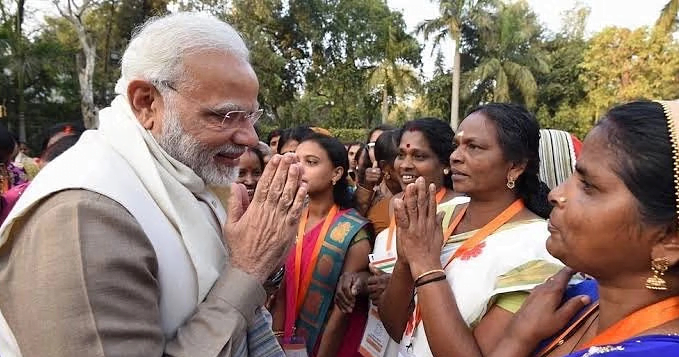
Here’s the math for the timeline: The Home Minister says that census and delimitation will happen “after 2024 polls,” and according to the data available, it would end by 2026. Next, considering the last delimitation commission (Justice KK Gupta Commission) submitted its recommendations after 14 years in 1995 based on the 1981 census, it is viable to assume that the delimitation commission making their recommendations this time will take at least 10 years. The probability (if there isn’t any President’s Rule in between) of the next General Elections happening is in 2039. Therefore, the Women’s Reservation Bill will be implemented in the 2039 General Elections; which is 16 years from now.
What’s in the name?
The Bharatiya Janta Party (BJP) has named the Women’s Reservation Bill the “Nari Shakti Vandan Adhiniyam,” which translates into “Woman Power Salutation Regulation.”
The name itself has already drawn criticism and here lies the problem. When the party names the bill as a salutation to women’s power, it does not look like it is a woman’s right. It is in the light that the bill is saluting women for being in the Parliament and not giving them their long-standing seats. More importantly, it treats women differently and that is unpleasant.
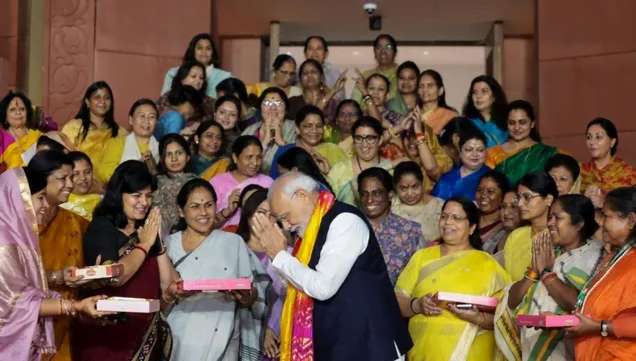
Women have an equal right for the public seat and the BJP saluting women’s power for that is unalike and separating us from men. It most classically presents “the Devi stereotype,” which stresses that women should be worshipped and adored.
Prime Minister Narendra Modi and Home Minister Amit Shah repeatedly refer to the beneficiaries of this bill as their mothers, daughters and daughters-in-law. But the problem with that is women are tired of being given constitutional or fundamental rights because they are daughters or mothers. They want these rights because they are also equal citizens of the country and do not want to be treated as devis or mothers, reducing them to second-class citizens.
Tragically, this stereotype is absent when women are raped publicly and paraded naked on camera or when their rapists are set free. In the words of Erode Venkatappa Ramasamy, “The pretence of men that they respect women and strive for their freedom is only a ruse to deceive women.”
Furthermore, Prime Minister Narendra Modi and Home Minister Amit Shah repeatedly refer to the beneficiaries of this bill as their mothers, daughters and daughters-in-law. But the problem with that is women are tired of being given constitutional or fundamental rights because they are daughters or mothers. They want these rights because they are also equal citizens of the country and do not want to be treated as devis or mothers, reducing them to second-class citizens.
What happens now that we have the Women’s Reservation Bill?
Now that the Women’s Reservation Bill has been passed by both houses; does this mean women independently get 33 per cent reservation in both the Lok Sabha and the State Assemblies? Probably not, because as history reads, women are very often used as pawns by their husbands, fathers or brothers. This will increase the prospect of the bahu-betis family politics.
The seat gets occupied by a woman but all the decisions are in the hands of their male kin. The women of the family will get the name and fame of being a member of parliament from a constituency from where their male kin were elected.
The bill will remain beneficial only for the upper-caste women of Indian society. For actual development, we need a ‘quota-in-quota,’ system. We need a bill that reserves seats for the other backward classes (OBC) because otherwise, this bill is the Elite Privilege Brahmin Women’s Reservation Bill and the OBC women are being cheated on.
Neither does this help the cause of women nor empower them as it is simply men who are vicariously taking these decisions and implementing governance in the name of their female family members. It might increase the number of women seated in the Parliament but it will not reflect in the law-making or achieving gender equality leading to a pluralistic society.
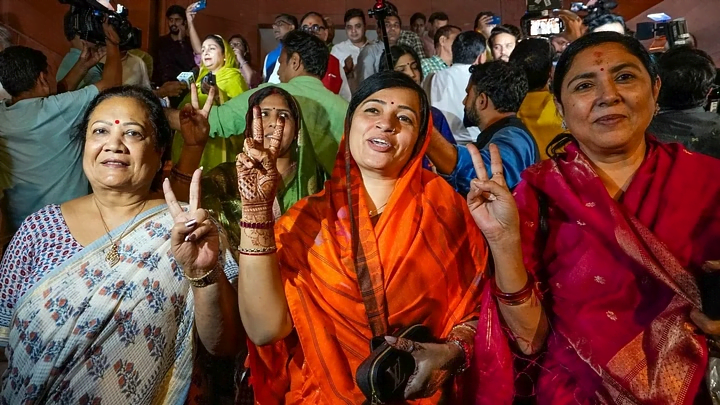
Although this Women’s Reservation Bill is a reasonable step that promises to bring more women into the political sphere, it lacks intersectionality. This is because the bill will remain beneficial only for the upper-caste women of Indian society. For actual development, we need a ‘quota-in-quota,’ system. We need a bill that reserves seats for the other backward classes (OBC) because otherwise, this bill is the Elite Privilege Brahmin Women’s Reservation Bill and the OBC women are being cheated on.
In the fast-paced run of public offices by the elite women, the underprivileged and under-represented women will never be able to make it. It leads to the reservation of upper-caste women only. Already, gender roles and patriarchy confine women in the domestic arena and make them doubt their position. Above that, their socio-economic conditions and non-political backgrounds limit them further.
In the words of Mahua Moitra, “Are we women less than cows that we need to wait while you count and draw lines?“
In May 2022, Maharashtra BJP president Chandrakant Patil said, “Ghar jao, khana banao,” to Supriya Sule on record. Will the society view women as serious leaders? Probably not, because societal stereotypes still draw pictures and narratives of men when they hear leadership roles. Furthermore, blatant sexism and misogyny are rampant and uncontrolled.
Women’s Reservation Bill remains tokenistic
At the end of the day, the Women’s Reservation Bill remains tokenistic and only a political debacle. Even after 27 years of it being introduced, the bill remains flawed and still under the table. All political parties claim to feel so personally and deeply about gender equality and women’s political participation in India but do nothing to achieve equality.
The duplicity is such that they always work hard to give women the rightful seat, but never enough. It remains a hollow tool for the ruling party to gain votes and build their “sabka vikaas,” image in front of the people of India. They try to wash their hands with schemes like Beti Bachao Beti Padao but again get stained by defending marital rape in the Courts. It also remains a tool in the hands of the opposition as Congress politicians claim that this is “their bill,” and Rajiv Gandhi planted the first seed of women’s reservation in Parliament (In 1989, the bill was passed in Lok Sabha but not the Rajya Sabha and later in 2010, the bill was passed in the Rajya Sabha but never in the Lok Sabha).
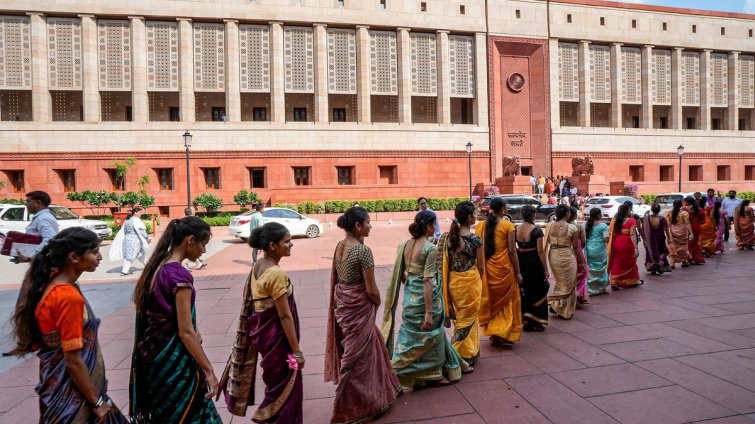
The ground reality is that just one woman occupies the seat of the Chief Minister (West Bengal) among the 28 states and Indira Gandhi is the only female to occupy the Prime Minister’s Office in India’s 76 years of independence. Acknowledging the increase in women’s political participation and representation but still not being near enough.
The ground reality also is that there is a lack of female political faces for younger women to look up to. This is important so that more women aspire to be in positions of legislative power when they think of it as a norm and not a rare case.
Women’s political participation extends further than just their voting rights; it also means them getting the opportunities and being able to run for public office without the rampant sexual violence and discrimination. More importantly, having women and other gender minorities in ministerial positions of power is crucial for reducing the Global Gender Gap Index (India ranks 127th out of 146 countries in the report’s 2023 edition) (1).
About the author(s)
Ruchi Bhattar is a student at the Department of Law, University of Calcutta. Her areas of interest include politics, feminism, social justice and various other societal institutions.
